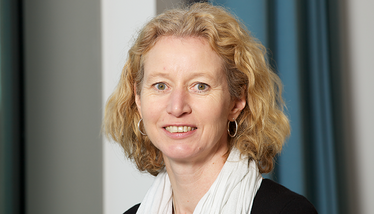Sitting Down With… The Past: Jane Osbourn
We dive into the archive of 2020 for insight and inspiration – this time with Jane Osbourn.
| 2 min read | Interview

Credit: Interviewee supplied
Like many others, Jane Osbourn – CSO of Alchemab and former chair of the UK BioIndustry Association – found science through her desire to understand more about how the world around us works. Her scientific explorations were awarded with an Order of the British Empire and Scrip’s Lifetime Achievement Award for services to drug discovery, development and biotechnology. We discussed her desire for change in the pharma industry, career, and advice for young researchers, among other things.
On the pharma industry:
“There should be more focus on identifying drugs based on biological function first; we should be looking at how they interact with disease mechanisms, rather than specifically defined targets. The pharma industry is doing a really great job and has been hugely successful, but we are at a point where target supply in its classic form is becoming limited. We need to look at function first, and how to perform drug screening in a way that will give insight into different areas of biology.”
On her career:
“I was a student and post-doc in the 1980s – PCR had just been invented and a revolution was taking place in molecular biology, so it was an exciting time to enter the field. Later, I switched my focus to the emerging area of antibody engineering and applied for a job at Cambridge Antibody Technology (CAT). The technical potential of human antibodies was tempting from an academic perspective, but as soon as I started working in a biotech environment, I realized the full extent of the applications in medicine.”
On young researchers:
“I didn’t have a career plan – I followed my passion. My advice is to find your passion and really immerse yourself in it! Become an expert in something early on so that you go through the process of understanding how to get into a subject in depth. If you can do it once, then you will have the confidence to do it again and again in other areas. But wherever you are, keep asking yourself if you’re enjoying it. I had a successful academic career, but I flourished in the biotech environment because there was a sense of pace, shared objectives, and ambition that I loved. I think it is very important to work out your ideal cultural environment and to keep checking that you are meeting your own goals in terms of satisfaction.”
Read the full article, first published in January 2020.



















